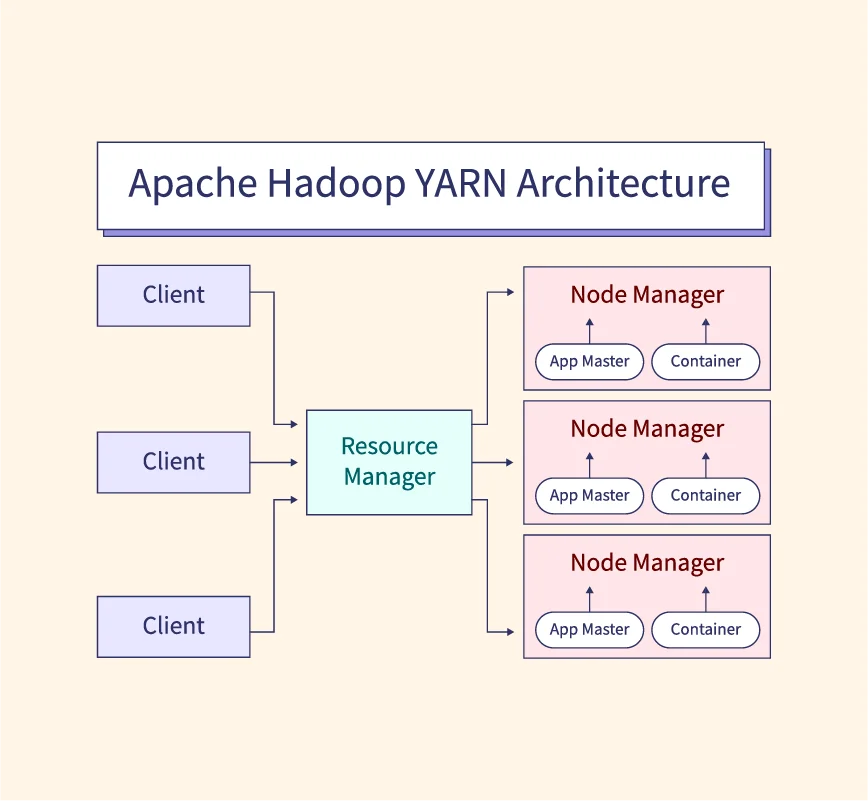As organizations increasingly rely on data-driven strategies, the demand for skilled big data engineers in India has surged. From startups to global enterprises, companies are investing in professionals who can design, build, and maintain scalable data infrastructure. With the ever-expanding volume of structured and unstructured data, the role of a big data engineer has become both essential and lucrative. Understanding the salary trends in 2025 helps not only aspiring professionals plan their careers but also enables working engineers to benchmark their earnings and make informed decisions about job changes, upskilling, or salary negotiations in a competitive tech landscape.
What is a Big Data Engineer?
A Big Data Engineer is a specialized IT professional responsible for designing, developing, and maintaining systems that collect, store, and analyze massive datasets. Their primary role is to build the architecture that allows organizations to process large volumes of data efficiently and securely. This includes setting up data pipelines, integrating various data sources, and optimizing storage and retrieval.
Big data engineers typically work with technologies such as Hadoop, Apache Spark, Apache Kafka, Hive, Pig, and NoSQL databases like HBase or Cassandra. They also use tools like Airflow, AWS, Azure, and Scala or Python for scripting and automation. In addition to strong programming and data management skills, they must understand distributed computing, data modeling, and performance tuning.
Big Data Engineer Salary Overview
In 2025, Big Data Engineers continue to command competitive salaries across global markets due to the rising reliance on data infrastructure. The average global salary for a big data engineer is estimated to be around $110,000 to $140,000 per year, depending on experience and location. In the United States, salaries can exceed $150,000 annually, while engineers in the UK typically earn between £60,000 to £85,000. In India, the average annual salary ranges from ₹8 LPA to ₹25 LPA, with top-tier engineers at multinational firms earning even more.
The salary varies significantly with experience:
- Entry-level (0–2 years): ₹5–8 LPA
- Mid-level (3–6 years): ₹10–18 LPA
- Senior-level (7+ years): ₹20–35+ LPA
When compared to related roles, Big Data Engineers often earn slightly more than Data Analysts and are on par with or just below Data Scientists, depending on the technical depth and business impact of the role. Their focus on building infrastructure rather than analytics gives them a unique niche in the data domain, with robust compensation to match.
Factors Influencing Big Data Engineer Salaries
1. Educational Background
A candidate’s academic qualifications play a foundational role in shaping salary expectations. Engineers with degrees from top-tier institutes like IITs, NITs, or international universities often command higher packages. Additionally, advanced degrees in computer science, data engineering, or analytics can boost salary potential, especially for senior or research-focused roles.
2. Years of Experience
As with most tech roles, experience directly correlates with compensation. Entry-level engineers start with modest packages, but salaries grow significantly with hands-on exposure to production-grade systems, large-scale data architecture, and real-time processing technologies.
3. Industry
Industries like finance, e-commerce, telecom, and healthcare tend to pay more for big data engineers due to the high stakes involved in managing customer data, transactional records, and real-time analytics.
4. Location
Salaries vary considerably based on geography. Metro cities like Bangalore, Hyderabad, Pune, and Gurgaon offer higher pay compared to Tier-2 cities, reflecting differences in demand and cost of living.
5. Company Size and Reputation
Big tech firms and multinational corporations (like Google, Amazon, TCS, Infosys) offer premium salaries and benefits. Startups may offer lower base pay but compensate with ESOPs and learning opportunities.
6. Skill Specialization
Engineers skilled in tools like Apache Spark, Kafka, Hadoop, AWS, Airflow, or real-time streaming frameworks are in higher demand and can negotiate better pay. Proficiency in cloud platforms, data lakes, and pipeline automation also significantly impacts earning potential.
Big Data Engineer Salary by Region
Big Data Engineer salaries vary significantly across regions, reflecting differences in tech demand, cost of living, and talent supply. In North America, especially the United States and Canada, salaries are among the highest globally. Engineers in major hubs like Silicon Valley or Toronto earn between $120,000 and $160,000 annually, with stock options and bonuses often included.
In Europe, countries like Germany, the UK, and the Netherlands offer annual salaries ranging from €55,000 to €90,000, depending on experience and sector. Tech-driven sectors such as fintech and e-commerce tend to pay at the higher end.
Across Asia, India leads with the most dynamic big data job market. Salaries here range from ₹8–35 LPA, with top cities like Bangalore, Hyderabad, and Pune offering the best packages due to their concentration of tech firms and startups.
With the rise of remote work, many Indian engineers now secure roles with foreign companies, earning dollar-pegged salaries while working from home. This trend has not only improved compensation but also increased access to global opportunities, making India a growing hub for remote big data talent.
Big Data Engineer Salary by Industry
Technology: In tech-first companies—such as cloud providers, SaaS firms, and product startups—big data engineers are in high demand. Salaries in this sector are often among the highest, ranging from ₹12–30 LPA, depending on skill level and stack proficiency.
Finance and Banking: Banks and fintech companies leverage big data for fraud detection, customer analytics, and risk management. Due to the critical nature of the data, these roles offer salaries from ₹10–28 LPA, often paired with performance bonuses.
Healthcare: Healthcare firms and health-tech startups rely on data engineers for patient data management, predictive modeling, and compliance-focused analytics. Salaries range between ₹8–20 LPA, with added value for candidates experienced in HIPAA-compliant systems.
E-commerce: E-commerce businesses use big data for personalization, inventory forecasting, and real-time transaction analysis. Engineers here typically earn ₹10–25 LPA, depending on company size and platform complexity.
Consulting: Big data engineers in consulting firms work on diverse client projects. Salaries range from ₹8–22 LPA, with added benefits like global exposure and skill diversification.
Career Path and Growth Opportunities
A career as a Big Data Engineer opens doors to multiple high-growth roles within the data ecosystem. As professionals gain experience, they can advance into more specialized or leadership-oriented positions.
- Senior Data Engineer: With 4–6 years of experience, engineers often transition into Senior Data Engineer roles, taking on responsibilities like architectural decision-making, mentoring junior engineers, and optimizing large-scale data pipelines.
- Data Architect: Data engineers with strong design skills can evolve into Data Architects, focusing on building enterprise-level data infrastructure, setting data standards, and ensuring system scalability across platforms.
- Machine Learning Engineer: Engineers proficient in Python, Spark, and ML frameworks may pivot into Machine Learning Engineer roles—designing predictive models and integrating them with real-time data environments.
- Chief Data Officer (CDO): At the leadership level, experienced engineers may rise to the role of Chief Data Officer, overseeing an organization’s entire data strategy, governance, and innovation roadmap.
- Specializations: Professionals can also specialize in real-time data processing (Kafka, Flink), cloud platforms (AWS, Azure, GCP), or AI/ML systems, positioning themselves for niche roles with high compensation and industry relevance.
Future Outlook for Big Data Engineers
- The role of Big Data Engineers in India is poised for significant growth in 2025 and beyond, driven by the integration of Artificial Intelligence (AI) and Machine Learning (ML) into various sectors. As organizations increasingly adopt AI-driven solutions, the demand for professionals who can build and maintain the underlying data infrastructure is escalating.
- Cloud computing is another critical area influencing this trend. With a substantial shift towards cloud-native architectures, proficiency in platforms like AWS, Azure, and Google Cloud has become essential for Big Data Engineers. This expertise not only enhances scalability and efficiency but also positions engineers for higher compensation.
- Data security concerns are also amplifying the need for skilled data engineers. As cyber threats become more sophisticated, organizations are prioritizing secure data pipelines and compliance with data protection regulations, further elevating the role’s importance.
- Industry-specific demand is notable in sectors such as finance, e-commerce, healthcare, and telecommunications, where real-time data processing and analytics are crucial. The Indian data engineering market, estimated at $18.2 billion in 2022, is projected to grow at a CAGR of 36.7% over the next five years, reaching $86.9 billion by 2027.
In summary, Big Data Engineers in India are entering a period of robust demand and opportunity, with their skills becoming increasingly vital across various industries.
Conclusion
As data continues to shape business strategy and innovation, the role of Big Data Engineers remains one of the most in-demand and well-compensated in the tech industry. In India, salary trends reflect a growing appreciation for their technical expertise and strategic value. From competitive entry-level packages to high-end senior roles and global remote opportunities, the earning potential is substantial. For those with a passion for data infrastructure, distributed systems, and emerging technologies, big data engineering offers a rewarding, future-proof career path with continuous learning and strong upward mobility across industries and domains.
Reference:


